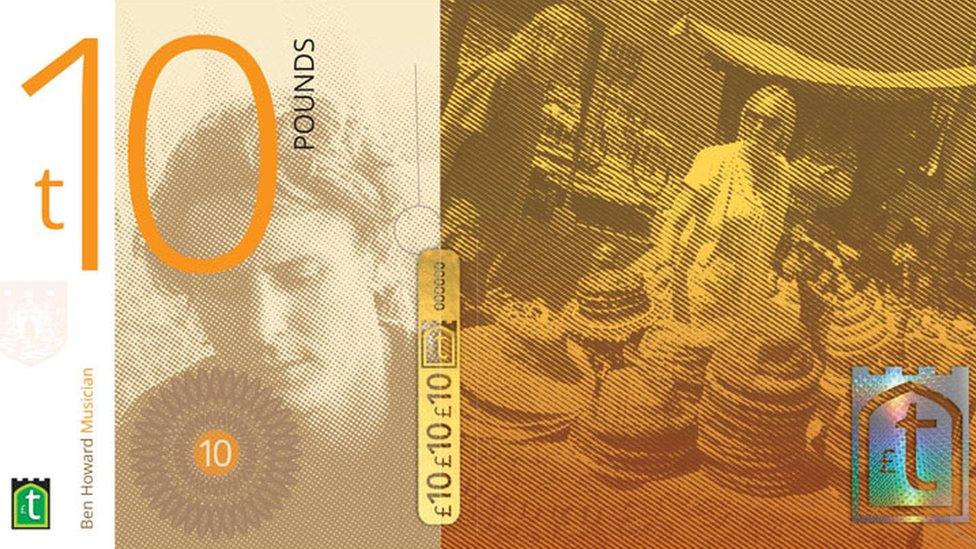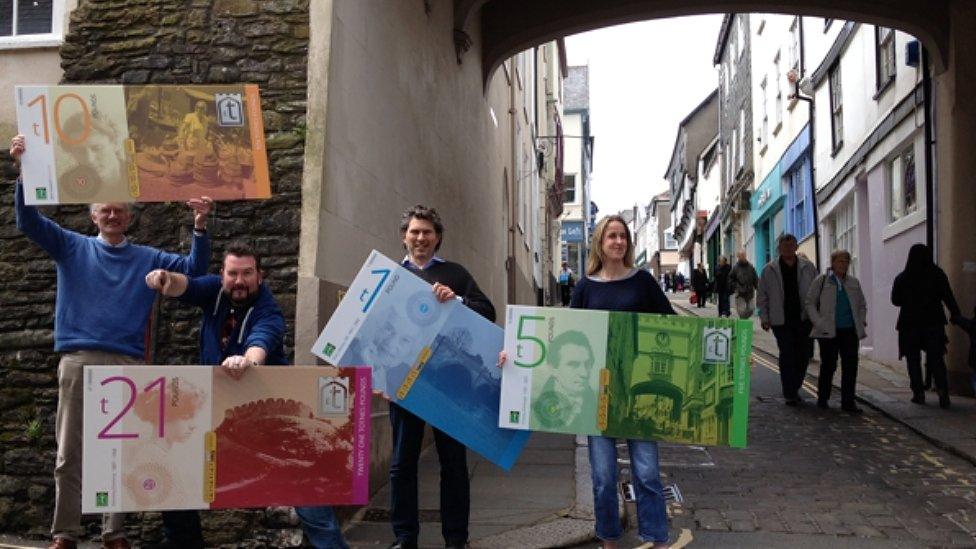Totnes pound: Currency killed by 'cashless economy'
- Published

Devon singer Ben Howard became the face of the town's £10 note in 2014
A town which started printing its own money more than a decade ago has ended the project blaming the "cashless economy" for its decline.
Totnes pounds were introduced in March 2007 as part of a month-long experiment to encourage local spending in the Devon town.
Organisers Transition Town Totnes said "an increasingly cashless economy" had contributed to the currency's decline.
Shoppers will be able to spend or redeem the pounds up until 30 June.
John Elford, of the Totnes Pound Steering Group, said: "Over time we have seen a decline in the use of the Totnes Pound, partly due to an increasingly cashless economy.
"However, if we measure the project's success in terms of the degree to which it provoked reflection on the importance of the local economy, then we have to say the Totnes Pound has been a real success."

The project saw more than 30,000 Totnes pounds circulated locally
The scheme saw more than 30,000 Totnes pounds circulated among local businesses over the years.
Devon singer Ben Howard also became the face of the £10 note in May 2014.
The Steering Group said the project "attracted interest from all over the world", including from the Bank of England, which had "recently purchased a set of numbered Totnes Pound notes for posterity".
What might seem like criminal activity was actually perfectly legal, with the notes being copies of a local pound note last in circulation in 1810.
The notes were first printed at a local printing plant using 75% recycled paper.
The city of Exeter also started a similar scheme in 2015 which stopped last year, external.